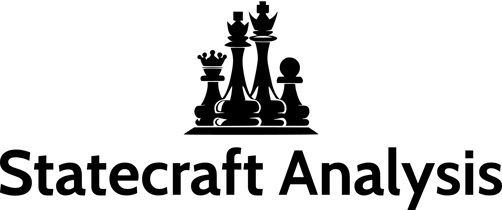Isaiah Berlin's Concept of Liberty: Exploring Positive and Negative Liberty
WESTERN POLITICAL THOUGHT
Introduction
Isaiah Berlin, a renowned political philosopher of the 20th century, developed a distinct understanding of liberty that has influenced the field of political theory. His concept of liberty can be divided into two main categories: positive and negative liberty. In this essay, we will delve into the intricacies of Berlin's ideas, examine relevant examples, explore criticisms, and ultimately draw a conclusion on the significance of his concept of liberty.
Positive Liberty
Positive liberty, as conceptualized by Berlin, refers to the ability of an individual to actively pursue their own goals and desires. It emphasizes the presence of opportunities and resources necessary for self-realization and self-determination. According to Berlin, positive liberty is closely tied to the notion of collective or societal interests, as it requires the creation of conditions that enable individuals to exercise their freedom effectively.
One example of positive liberty can be seen in the provision of education. By ensuring access to quality education for all members of society, individuals are empowered to develop their skills and knowledge, thus expanding their opportunities and enhancing their freedom to make informed choices. This example demonstrates how positive liberty can contribute to the overall well-being and autonomy of individuals.
However, it is important to acknowledge the potential dangers associated with positive liberty. Critics argue that the pursuit of collective interests can sometimes lead to the suppression of individual freedoms. When the state or any authority imposes a particular vision of the "good life" on individuals, it may restrict their ability to make choices that deviate from the prescribed path. This critique highlights the potential for positive liberty to infringe upon negative liberty, which we will explore further.
Negative Liberty
Negative liberty, in contrast to positive liberty, focuses on the absence of external constraints or interference in an individual's actions. It emphasizes the importance of non-interference and non-coercion as essential components of freedom. Berlin argues that negative liberty is essential for safeguarding individual rights and protecting against undue influence or oppression.
An example of negative liberty can be observed in the freedom of speech. When individuals are able to express their thoughts and opinions without fear of censorship or punishment, they are exercising their negative liberty. This freedom allows for the open exchange of ideas, fostering intellectual growth and democratic participation.
However, critics of negative liberty argue that it fails to account for the structural inequalities that can limit individuals' choices and opportunities. They argue that the absence of overt coercion does not guarantee true freedom, as individuals may still be constrained by societal norms, economic disparities, or systemic discrimination. This criticism highlights the limitations of negative liberty in addressing broader social injustices.
Relevance and Criticisms
Berlin's concept of liberty has been widely debated and critiqued within the field of political theory. One prominent criticism centers around the potential conflict between positive and negative liberty. Critics argue that the pursuit of positive liberty, particularly when enforced by the state, can infringe upon individual negative liberties. This tension raises important questions about the appropriate balance between collective interests and individual autonomy.
Furthermore, some scholars have questioned the feasibility of fully realizing positive liberty in practice. They argue that the provision of resources and opportunities necessary for positive liberty may require significant state intervention and redistribution of resources, which can be challenging to implement without compromising negative liberties. This critique highlights the complexities and trade-offs inherent in the pursuit of both forms of liberty.
Despite these criticisms, Berlin's concept of liberty remains influential in contemporary political theory. His emphasis on the importance of both positive and negative liberty provides a nuanced understanding of freedom and serves as a foundation for discussions on individual rights, social justice, and the role of the state.
Conclusion
Isaiah Berlin's concept of liberty, encompassing both positive and negative liberty, offers valuable insights into the complexities of freedom in society. While positive liberty emphasizes the creation of conditions for individual self-realization, negative liberty emphasizes the absence of external constraints on individual actions. Both forms of liberty have their merits and limitations, and striking a balance between them is a crucial challenge for any society.
By critically examining Berlin's concept of liberty, we gain a deeper understanding of the intricate relationship between individual freedoms, collective interests, and the role of the state. It prompts us to consider the trade-offs and challenges associated with the pursuit of different forms of liberty and encourages ongoing discourse on the nature of freedom in our societies.
Bibliography
Berlin, I. (1958). Two concepts of liberty. In Four essays on liberty. Oxford University Press.
Carter, I. (1999). Positive and negative liberty. Philosophy and Public Affairs, 28(3), 263-294.
Gray, J. (1982). The poverty of positive liberty. Political Studies, 30(2), 263-276.
Pettit, P. (2012). Negative and positive freedom. In The Oxford Handbook of Political Philosophy (2nd ed., pp. 47-59). Oxford University Press.
Ryan, A. (1979). Freedom and responsibility: On Isaiah Berlin's Four Essays on Liberty. Political Studies, 27(2), 249-264.
Taylor, C. (1985). What's wrong with negative liberty? In Philosophy and the Human Sciences (pp. 211-229). Cambridge University Press.
Williams, B. (2002). Isaiah Berlin's two concepts of liberty. In In the Beginning Was the Deed (pp. 195-231). Princeton University Press.
Young, I. M. (1990). Justice and the politics of difference. Princeton University Press.
Zalta, E. N. (Ed.). (2020). The Stanford Encyclopedia of Philosophy. Retrieved from https://plato.stanford.edu/archives/win2020/entries/liberty-positive-negative/
Zuckert, M. P. (2012). Isaiah Berlin's two concepts of liberty. In The Oxford Handbook of Political Philosophy (2nd ed., pp. 37-46). Oxford University Press.
